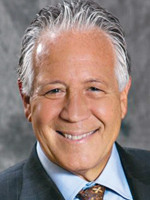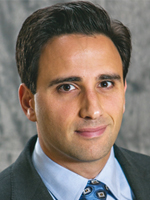Liability of health clubs for failure to use an automated external defibrillator (“AED”)
California mandates that health clubs have the life-saving devices and train employees to use them
Every day, at least one person suffers a sudden cardiac arrest (“SCA”) while exercising at a health club in the United States. SCAs claim approximately 250,000 lives per year in the U.S., representing a staggering 40 percent of the total deaths resulting from cardiovascular disease.
SCAs result from a disruption in the electrical system of the heart that usually can only be reversed by defibrillation – an electric shock to the heart by a defibrillator. People are 15 to 20 times more likely to die of an SCA during vigorous exercise, or within the 30 minutes following vigorous exercise. Without the use of an Automated External Defibrillator (“AED”), and defibrillation within five minutes, 95 percent of the people who suffer an SCA tragically die before even reaching the hospital. However, those that are defibrillated within a few minutes enjoy a survival rate of 90 percent. The survival rate drops by seven percent to 10 percent for each minute that goes by without defibrillation.
California’s Health and Safety Code mandates that health clubs have AEDs and ensure that a minimum number of employees “complete a training course in resuscitation and automatic external defibrillator use that complies with the regulations adopted by the Emergency Medical Services Authority and the standards of the American Heart Association or the American Red Cross.” (Health & Saf. Code, § 104113(e)(2)(D).) Moreover, every such club must have a written plan that “describes the procedures to be followed in the event of an emergency that may involve the use of an automatic external defibrillator.” (Health & Saf. Code, § 104113(e)(2)(E).)
Health clubs are fully aware of these statistics and regulatory requirements – which is why they frequently boast to the public that their staff are trained in CPR and in the use of AEDs. The problem is that their marketing materials and representations often fail to match their actual level of training and preparation. In other words, time and time again, people suffer SCAs at health clubs and are essentially left to die because the personnel on-site lack the appropriate training and knowledge necessary to properly apply the AEDs that their health clubs are promoting.
When faced with a civil lawsuit, health clubs often try to point to releases of liability that they require their members to sign – but those releases (if valid) do not preclude claims for gross negligence or fraud. California jury instructions define “gross negligence” as “the lack of any care or an extreme departure from what a reasonably careful person would do in the same situation to prevent harm to oneself or to others. A person can be grossly negligent by acting or by failing to act.” The doctrine of express assumption of the risk, including a signed waiver of liability, is not a defense to gross negligence. (City of Santa Barbara v. Sup. Ct. (2007) 41 Cal.4th 747, 777.) In addition, whether conduct amounts to gross negligence is usually highly factual and thus not susceptible to summary judgment. (Jiminez v. 24 Hour Fitness (2015) 237 Cal.App.4th 546.)
Moreover, the law is clear that gross negligence differs from ordinary negligence “only in degree not in kind. Thus, negligence and gross negligence amounts to a rule of policy that a failure to exercise due care in those situations where the risk of harm is great will give rise to legal consequences harsher than those arising from negligence in less hazardous situations.” (Colich & Sons v. Pac. Bell (1988) 198 Cal.App.3d 1225, 1241.) In civil lawsuits involving SCAs and the failure to properly apply an AED, the risk of harm, which all too often materializes, is death. And when death results from a defendant’s failure to perform its statutory duty to have properly trained health club personnel, the case should be decided by a jury – not on summary judgment.
Charles S. LiMandri

Charles S. LiMandri is a trial lawyer in San Diego. He has successfully represented clients in cases where health clubs failed to use an AED. LiMandri & Jonna, LLP. www.limandri.com.
Paul M. Jonna

Paul M. Jonna is a trial lawyer in San Diego. He has successfully represented clients in cases where health clubs failed to use an AED. LiMandri & Jonna, LLP. www.limandri.com.
Copyright ©
2026
by the author.
For reprint permission, contact the publisher: Advocate Magazine
